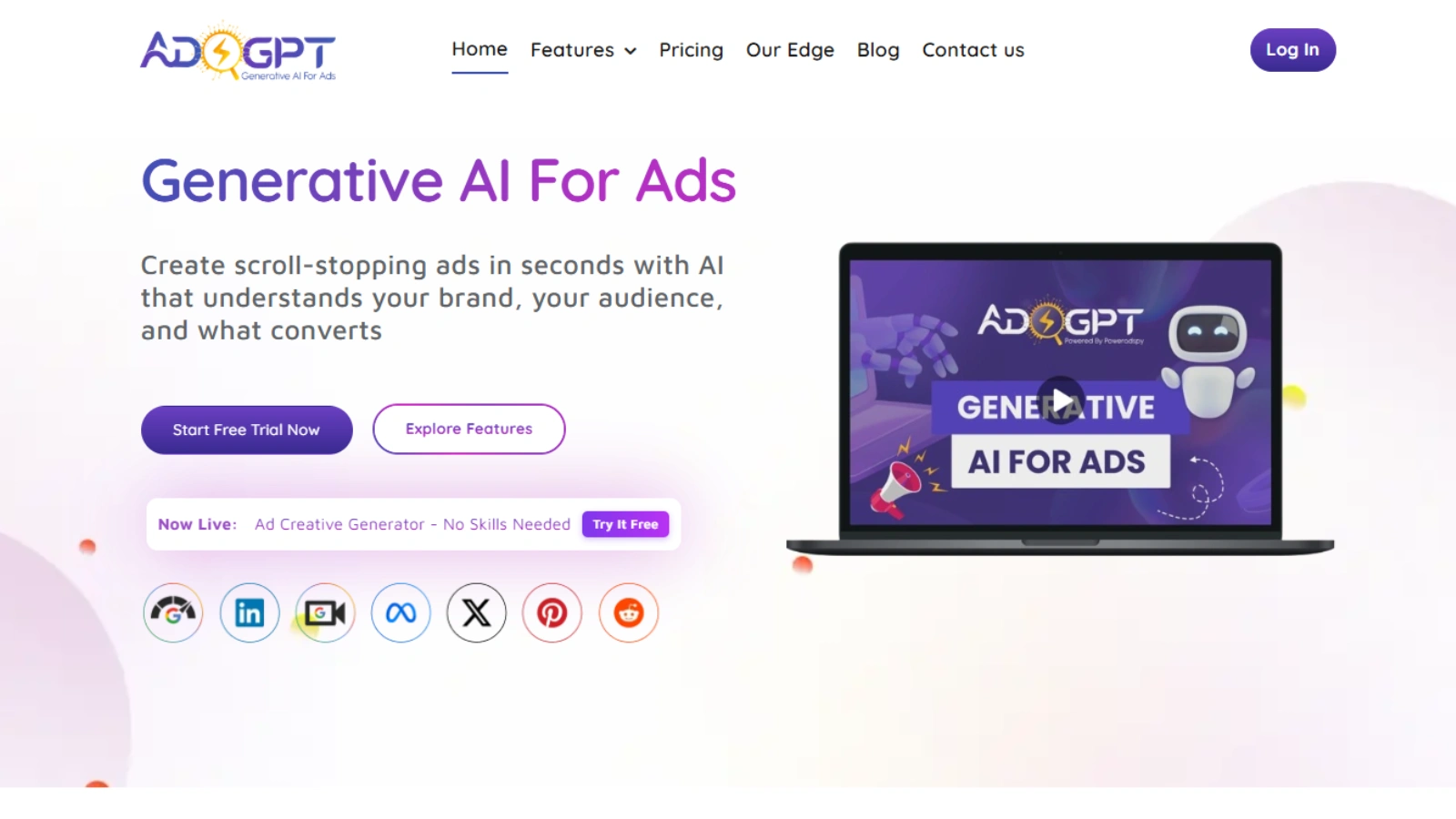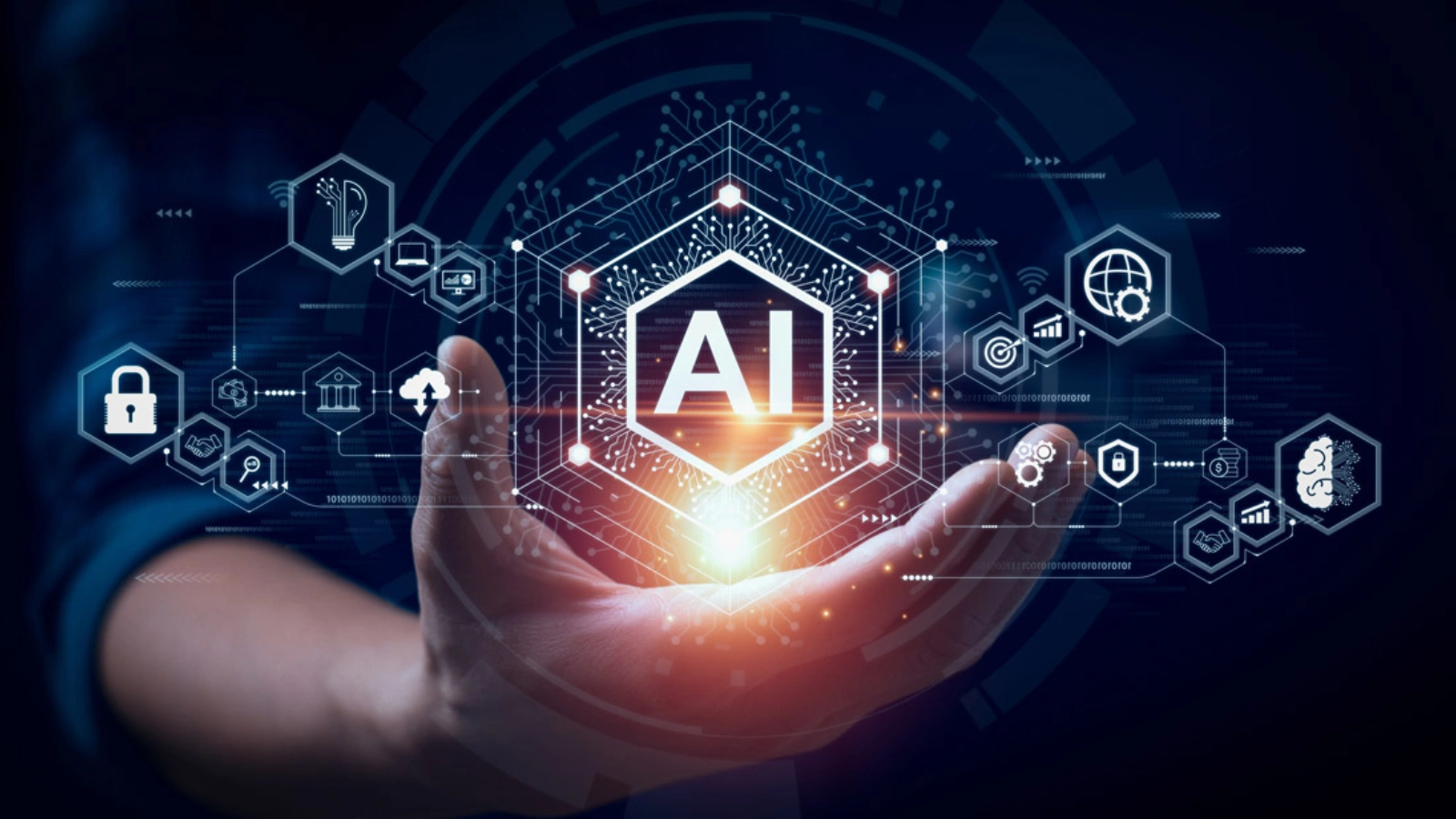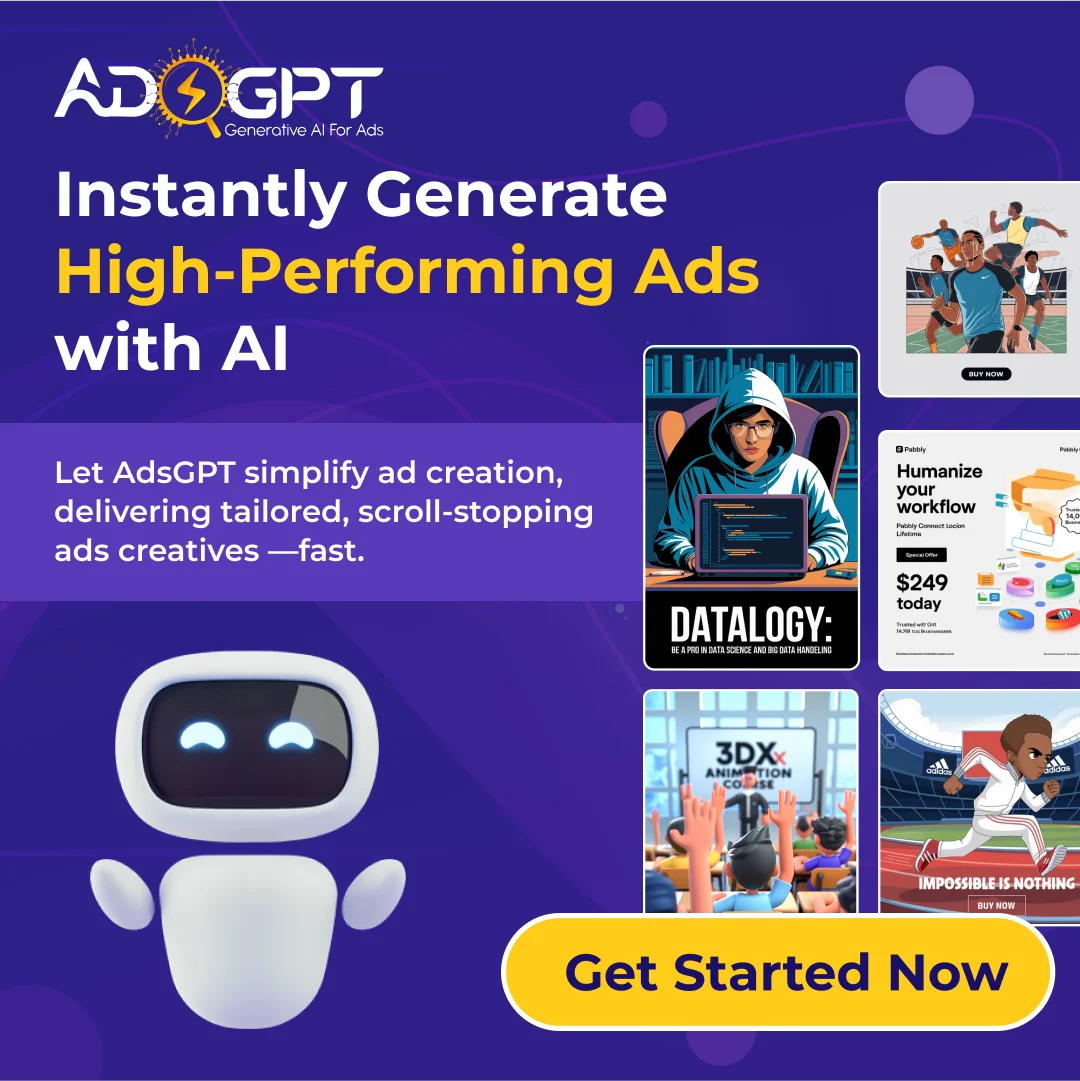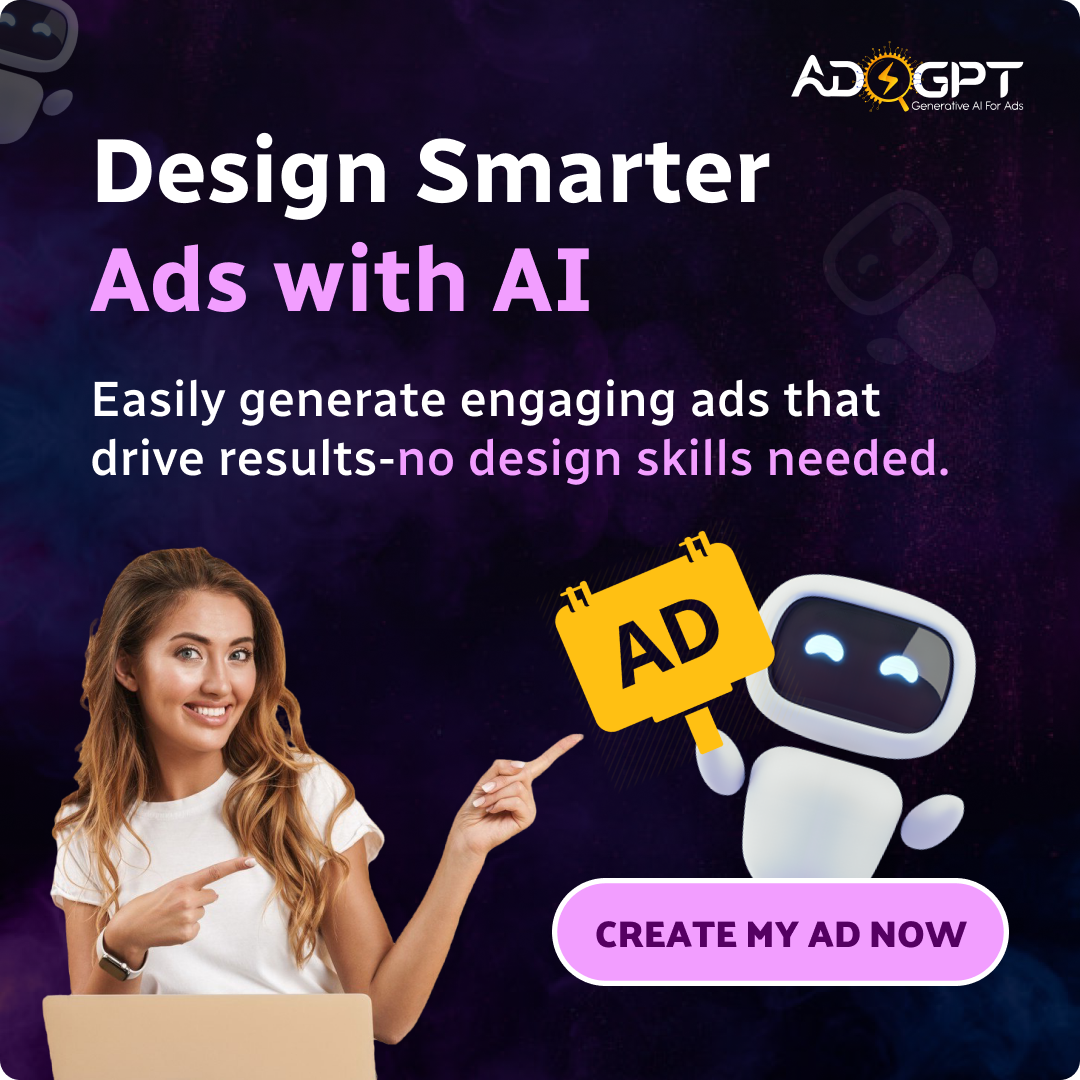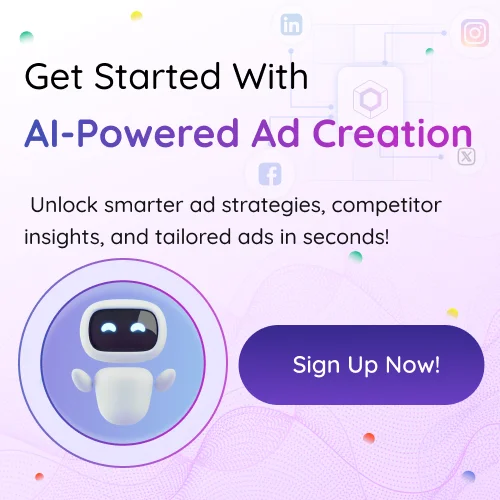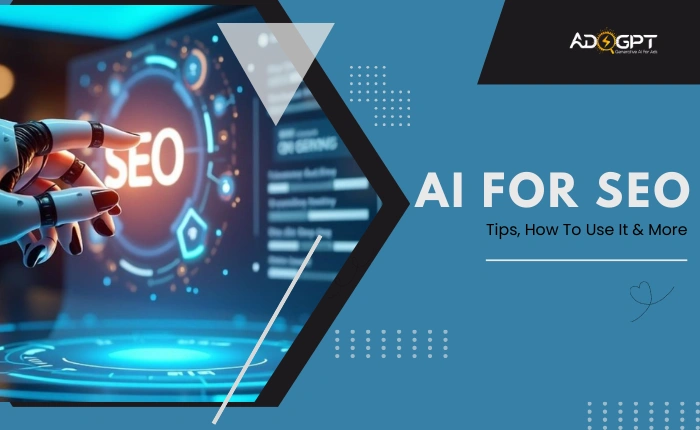
Is your website struggling to rank on search engines? SEO is more competitive than ever, and outdated strategies no longer deliver results. AI for SEO helps businesses and marketers optimize content, improve rankings, and create high-performing ad copies with less effort.
Yet, many still waste hours on manual tasks, missing AI’s ability to streamline keyword research, content creation, and performance tracking. AI-powered tools can make a real difference if ranking higher and driving more conversions are challenging.
In this blog, we will explain how to use AI effectively, from quick-witted keyword optimization to automated content insights. Let’s understand the modern dynamics of the competition and maximize your SEO efforts with AI-driven strategies that work.
Hit ‘Play’ Button & Tune Into The Blog!
What Is AI for SEO?
AI for SEO combines artificial intelligence and search engine optimization to improve website visibility. AI refers to machines that mimic human intelligence, performing tasks like learning, reasoning, and problem-solving. SEO focuses on optimizing content to rank higher on search engine results pages (SERPs). Together, they use machine learning and data analysis to enhance SEO strategies.
AI helps marketers analyze vast amounts of data quickly. It identifies search trends, user behavior, and competitor strategies. It allows businesses to adjust their SEO approach based on real insights.
Using AI for SEO automates keyword research, content optimization, and link building. Generative AI creates SEO-friendly content efficiently. AI-powered tools also provide real-time analytics, helping businesses refine strategies and improve rankings.
Why AI For SEO Essential For Marketers?
Marketers spend significant time on repetitive tasks like keyword research, content creation, and campaign tracking. These tasks are essential but can be time-consuming and distract their focus from strategy and creativity. AI for SEO helps by automating these processes, making it easier to execute campaigns efficiently.
With AI-powered tools, marketers can:
- Identify high-ranking keywords and trending topics quickly.
- Generate content ideas based on audience preferences.
- Write and optimize content for better search engine visibility.
- Automate workflow and template creation to streamline tasks.
- Track and analyze campaign performance with real-time insights.
By removing manual guesswork, SEO AI allows marketers to make data-driven decisions. Using AI in marketing improves accuracy, saves time, and enhances content effectiveness. AI for SEO is valuable for those looking to scale their marketing efforts.
Read More!
How To Use An AI Seo Content Generator?
All You Need To Know About AI-Generated Content And How Google Reacts To It
How AI Is Transforming Content Creation For Marketers?
Marketers constantly need fresh, engaging, and SEO-friendly content. AI for SEO simplifies this process by automating key tasks, improving content relevance, and optimizing for search engines. Here’s how AI is reshaping content creation:
1. Generates Content Faster
Creating high-quality content takes time. AI speeds up this process by generating topic ideas, content outlines, and even full drafts. It analyzes search trends, user preferences, and keyword data to ensure the content is relevant. Instead of starting from scratch, marketers get a structured draft they can refine.
Marketers have started seeing potential growth in leveraging tools like AdsGPT, an advanced AI-powered ad copy generator, to further streamline the process by crafting compelling and optimized ad copies tailored for various platforms.
2. Finds Trending Topics
AI scans search engines, social media, and online forums to identify trending topics. It understands what users are searching for and helps marketers create content that aligns with current interests. This ensures the content stays relevant and has a higher chance of ranking.
3. Optimizes SEO Elements
AI SEO tools analyze content to improve keyword placement, readability, and metadata. They ensure the content follows SEO best practices, making it more likely to rank on search engine results pages (SERPs). AI also checks for content gaps and suggests improvements.
One such tool, AdsGPT, takes AI-driven content optimization to the next level. It helps marketers craft high-converting ad copies and SEO-optimized content.
AdsGPT- Advanced Ad Copy Generator
AdsGPT is an advanced AI-driven ad copy generator designed to create high-performing ad copies for multiple platforms, including Google Ads, Facebook, Instagram, and LinkedIn. It helps marketers craft compelling, data-driven advertisements that maximize engagement and conversions.
- Context-Aware AI
AdsGPT understands the context of your brand, industry, and target audience. It generates ad copies that align with user intent, ensuring content remains relevant and engaging.
- Multi-Platform Adaptability
It tailors ad copies for platforms like Google Ads, Facebook, Instagram, and LinkedIn. It ensures each ad follows the best practices of the specific platform, maximizing visibility and performance.
- A/B Testing Insights
AdsGPT provides multiple variations of ad copies, making it easier for marketers to test different messages. It suggests refinements to improve ad effectiveness by analyzing engagement and conversion data.
- Real-Time Suggestions
The AI continuously analyzes trends and audience behavior, offering real-time suggestions to optimize content. It helps refine keyword usage, call-to-action placement, and messaging strategies for better engagement.
- SEO-Driven Recommendations
AdsGPT ensures that ad copies are not just compelling but also SEO-friendly. It suggests relevant keywords, improves readability, and enhances metadata, making content more search engine-friendly.
By integrating AdsGPT into your SEO strategy, you can create optimized content that attracts the right audience and drives better results.
4. Understands Search Intent
AI uses Natural Language Processing (NLP) to analyze search queries and understand user intent. It helps create content that directly answers user questions, making it more valuable to the audience and improving its search ranking.
5. Improves Content Quality
AI enhances content by suggesting semantically related keywords, relevant phrases, and additional insights. It makes the content more in-depth and authoritative, increasing its chances of ranking higher in search results.
6. Personalizes User Experience
AI enhances user engagement by recommending content based on browsing history and preferences. When a client visits your website, AI suggests articles, videos, or products that match their interests. It keeps users on the site longer and encourages them to explore more content.
7. Boosts Conversions
AI-driven recommendations guide users toward relevant content, helping businesses increase engagement and conversions. Whether it’s encouraging a newsletter sign-up, a product purchase, or a service inquiry, AI ensures that users find what they need. Without AI for SEO, businesses risk missing out on valuable opportunities to attract and retain visitors.
By integrating AI into the content creation process, marketers can save time, enhance content quality, and improve search rankings. AI serves as a powerful assistant, helping brands create engaging, data-driven content that meets both user needs and SEO standards.
What Are The Challenges in AI for SEO?
AI for SEO offers many advantages, but it also comes with challenges. Marketers must ensure
AI-generated content remains high-quality, original, and aligned with business goals. While AI automates tasks like keyword research and content drafting, human input is necessary to maintain accuracy and creativity.
1. Balancing Automation with Human Expertise
AI can handle research, structure outlines, and generate drafts quickly. However, relying solely on AI may result in generic content. The best approach combines AI tools for SEO with human creativity. Marketers should refine AI-generated drafts, add unique insights, and align content with brand identity.
2. Ensuring Authenticity and Originality
Search engines prioritize valuable, original content. AI lacks business context, so marketers must integrate proprietary insights. Subject matter experts should review AI-generated content to enhance depth and accuracy.
AI for SEO simplifies optimization but requires human refinement. A strategic balance ensures content remains engaging, relevant, and effective in driving organic traffic.
Tips for Using AI for SEO
AI for SEO helps marketers streamline content creation, keyword research, and optimization. However, using it effectively requires a strategic approach. Here are some tips to maximize its benefits:
1. Use AI for Keyword Research
AI tools analyze vast amounts of search data to identify high-ranking keywords. Use AI tools for SEO to find relevant keywords, search trends, and competitor strategies.
2. Optimize Content with AI
AI can suggest improvements in readability, keyword placement, and metadata. However, consistently refine AI-generated content to ensure originality and brand consistency.
3. Maintain a Human Touch
AI can draft content, but human creativity is essential for storytelling and engagement. Edit AI-generated drafts to add depth, insights, and brand voice.
4. Leverage AI for Technical SEO
AI helps with site audits, page speed optimization, and link-building strategies. Use AI insights to fix technical issues and improve site performance.
5. Monitor and Adapt
Search algorithms evolve constantly. Use AI-driven analytics to track content performance, analyze user behavior, and adjust SEO strategies accordingly.
AI for SEO enhances efficiency, but success lies in balancing automation with human expertise.
The Bottom Line
AI for SEO is changing the way businesses approach content and search rankings. It takes care of time-consuming tasks like keyword research, content optimization, and performance tracking, making SEO more efficient. But while AI can do the heavy lifting, human creativity is what makes content truly valuable.
The key is to use AI as a tool, not a replacement. It helps with data and structure, but originality and engagement come from real human input. With the right balance, businesses can create high-ranking, audience-focused content that drives real results. And with tools like AdsGPT, even ad copy gets a boost—helping marketers craft compelling, optimized ads in seconds.
FAQs
- What is AI for SEO?
AI for SEO refers to the use of artificial intelligence technologies to improve search engine optimization strategies. It helps automate keyword research, optimize content, and analyze performance data to improve rankings and visibility on search engines. - How does AI help in SEO?
AI for SEO analyzes large data sets, identifies trends, and suggests optimizations to enhance content quality and website performance. It automates repetitive tasks like keyword research, content creation, and link analysis, saving time while improving accuracy. - Can AI completely replace human SEO experts?
No, AI for SEO enhances human efforts but doesn’t replace them. While AI tools handle data analysis and automation efficiently, human creativity and strategic thinking are still vital for crafting unique, engaging, and brand-aligned content. - Which are the best AI tools for SEO?
Popular AI tools for SEO include AdsGPT, SurferSEO, Clearscope, Jasper, and Frase. These tools help automate keyword research, optimize on-page SEO, and create SEO-friendly content faster. - How can small businesses benefit from AI for SEO?
Small businesses can use AI for SEO to compete effectively with larger brands. It helps them identify target keywords, optimize web pages, create relevant content, and track performance, all without needing large marketing teams.



